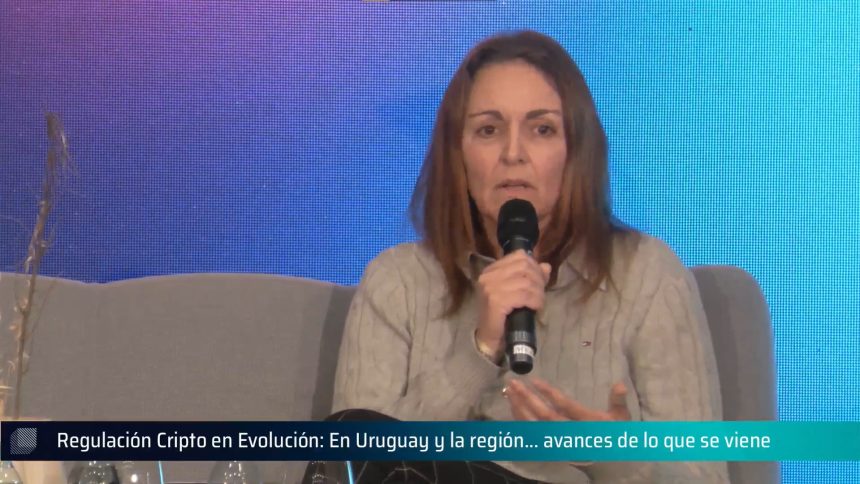Patricia Tudisco, the mayor of the monetary regulation of the Central Financial institution of Uruguay (BCU), introduced as we speak that it’s engaged on the rules obligatory so as to add 20,345 legal guidelines accepted within the cryptocurrency sector final yr.
“Our predominant problem is (all growth within the subject of worldwide organizations, GAFI, rules of iOSCO rules…European rules…European rules…).
Tudisco’s feedback got here on the convention attended the Blockchain Summit World Occasion within the seventh version held at Montevideo.
The order mentioned The legislation offers them the authority to include firms into monetary propertyin line with definitions established by central financial institution rules. Due to this fact, he confirmed that his preliminary problem to promulgation designated it.
“You’ll be able to’t say the quantity we have been speaking about that challenge on Monday,” he mentioned. “However that led us to a elementary dialogue,” he mentioned.
He defined on this respect that the rules are based mostly on subject material (provider firms) relatively than objects (just about energetic), however have some nuance. “It does not imply that there isn’t any consideration within the object as a result of it does not regulate it,” he mentioned.
In actual fact, he careworn that the subsection legislation additionally contains individuals who made gross sales on non-financial digital property. They have been compelled to tell apart between them and funds..
«This elementary differentiation is as a result of for “monetary asset providers suppliers,” the main target of regulation is on problems with shopper safety and washing prevention. However in different circumstances, we’ll quickly see what our rules name “a supplier of non-financial digital asset providers,” however the one focus of the rules has is on the difficulty of cleansing prevention».
Patricia Tudisco, mayor of the monetary regulation of the Central Financial institution of Uruguay.
Officers didn’t share the definition of monetary and non-financial digital property supplied by the Central Financial institution of Uruguay, however she hoped for it. Bitcoin (BTC) is being thought-about within the second class.
«For us as a central financial institution, Bitcoin is a non-financial digital asset. It’s then entered as a supplier of non-financial digital asset providers if the corporate solely gives Bitcoin gross sales providers. (Nevertheless) if what he did is “non-financial” detention, then the legislation sends us to control the corporate and solely limits us to the sale (of monetary property), you then keep outdoors of the rules »
Patricia Tudisco, mayor of the monetary regulation of the Central Financial institution of Uruguay.
Tudisco mentioned: «That is very associated to what I am telling you (…). So I instructed them that in some unspecified time in the future it ought to be thought-about, as it’s about providers in different nations the place rules are offered with out fascinated with what the thing is especially like.
He sums up the significance of this definition and reads which self-constraints are in a position to perceive when the day you learn the bundle of guidelines that every applies to.
He mentioned that too Centralized stubcoins, similar to tethers (USDTs), are thought-about monetary digital property. Due to this fact, firms providing this class supply non-financial similar to Bitcoin, however are beneath a supplier license for monetary digital property.
“There is a chance for legislators to evaluation this imaginative and prescient throughout the evolutionary framework of crypto-ecosystems (…). For instance, if that you must regulate these objects, similar to secure digital property, broadcasting, and many others. (…)
Such an announcement might be revamped every week of promulgating the genius legislation regulating US-issued stubcoins, as reported by Cryptootics. In the meantime, the Capitol has made progress in debate over the classification of digital property. securities.


